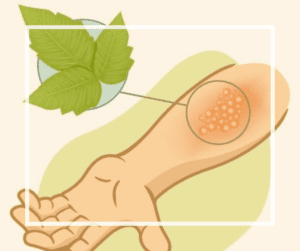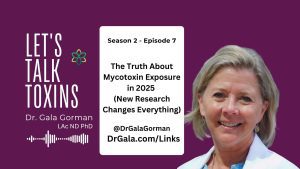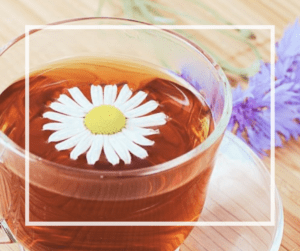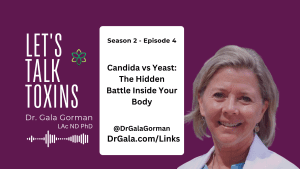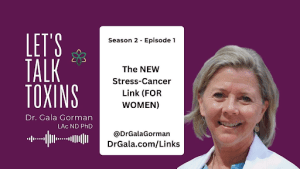Insomnia can worsen in midlife, but you may already know that. Fortunately, there are things you can do to restore sound sleep … even in midlife.
Dr. Gala’s Quick Take
Yes, as you get older, insomnia can worsen due to factors like hormonal changes and stress. It’s important to address this not only with lifestyle adjustments like creating a regular bedtime routine but also considering other alternatives like cognitive behavioral therapy for stress-related insomnia.
Insomnia: What You Need to Know as You Age
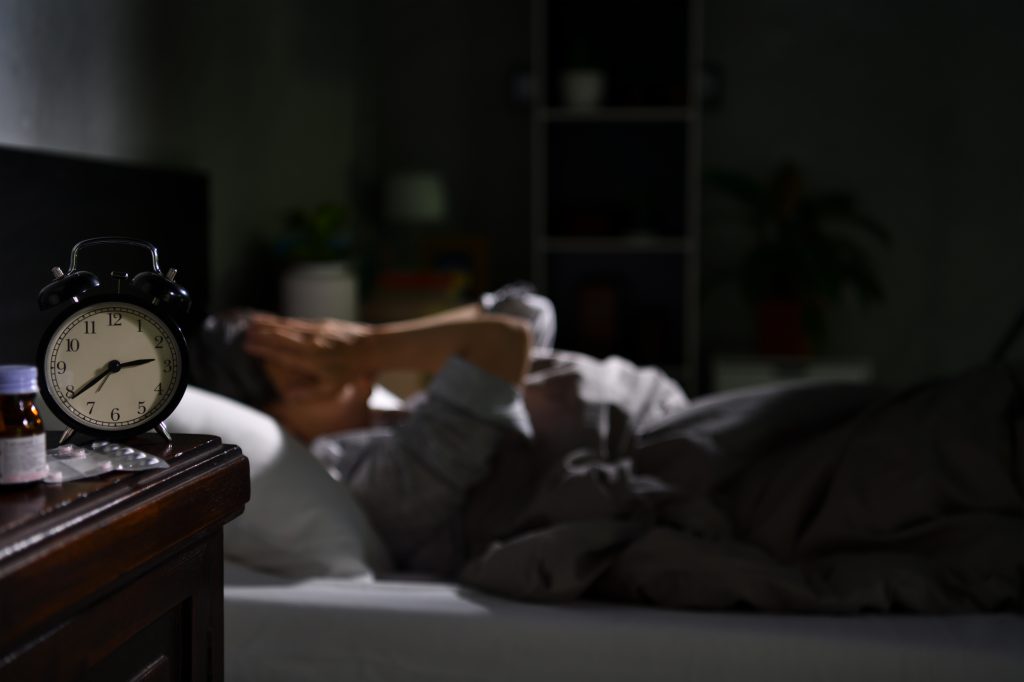
As you advance in years, insomnia can become a more prevalent issue due to elements such as hormonal shifts, stress, and other health concerns. It’s not just an inconvenient aspect of aging, but a condition that requires your focus. You might notice your sleep becoming disjointed, finding it hard to drift off, or waking up too soon.
For women experiencing menopause, sleep disruptions like hot flashes, night sweats, and mood swings can make insomnia worse. But don’t lose heart or hope. Recovering your rest is possible if you’re willing to make some changes.
Establishing a regular bedtime routine and creating a sleep-conducive atmosphere are two potent strategies. They not only enhance your sleep quality but also allow you to manage your sleep patterns. You can also think about cognitive behavioral therapy (CBT), a validated technique that addresses insomnia caused by stress in older adults. It can help you deal with negative thoughts and behaviors associated with sleep.
Current Research About Insomnia In Midlife
Exploring the latest research can offer insights into how insomnia appears in midlife and the unique obstacles it creates. It’s not just about restless nights, tossing and turning. You’re dealing with a complex mix of factors involving your brain and body.
For example, recent studies have discovered an intriguing link between restless legs syndrome and insomnia in midlife. Even after successful treatment of nighttime leg movements, restless legs syndrome may continue, preventing you from sleeping.
And one factor that contributes to this sleep disturbance syndrome is the increased levels of glutamate, a neurotransmitter in the brain. Given the impact of glutamate, it’s important to recognize its relationship to serotonin.

Serotonin is also a neurotransmitter that helps manage glutamate levels. When serotonin is regulated, it prevents excessive glutamate release. Reduced glutamate levels are less likely to trigger conditions like restless legs syndrome.
Similarly, GABA, which is also regulated by serotonin, factors into this delicate balance by providing inhibitory effects that calm and stabilize nerve activity.
Keeping these neurotransmitters in balance is crucial for managing these conditions that often contribute to insomnia.
Chronic insomnia in midlife is linked with distinct differences in the brain’s motor cortex. Neurons in your brain will typically show enhanced excitability, which can make it more difficult for you to drift off to sleep. Increased information processing in your brain (known as overthinking) might also disrupt your sleep.
Understanding this research can direct your method of treatment. Being informed moves you towards conquering these hurdles. Remember, it’s not just about surviving sleepless nights, but giving you control over your insomnia.
How to Beat Midlife Insomnia

As you enter midlife, insomnia may seem daunting, but you’re not alone. There are tried-and-true methods that can help you regain those serene nights of rest.
Hormonal changes during midlife may interfere with your sleep patterns, but you can turn the tables with the power of routine. Establish a consistent bedtime routine and create a calming sleep environment to promote better rest.
If stress or anxiety stokes your insomnia, remember what I mentioned. Cognitive behavioral therapy is an effective tool that can help you handle these mental factors successfully.
Take into account your physical health too. Night sweats and hot flashes can interrupt your sleep, but they don’t have to dominate it.
You may be tempted to turn to melatonin supplements. They can act as a beneficial aid, helping you regain command over your sleep cycle. But they should only be used short-term. Long-term use can make it even more challenging for your body to regulate hormones.
Diet and Brain Health in Menopause

As you transition through menopause, supporting your brain health and cognitive function can be achieved by adopting a nutrient-rich diet. This is an effective strategy to restore your sleep habits, which can be affected during this stage. Foods rich in omega-3 fatty acids, like as salmon and walnuts, aren’t just delicious, they’re allies for your brain, helping to maintain cognitive function and combating inflammation.
The strength of antioxidant-rich foods shouldn’t be overlooked. Berries, dark chocolate (make sure you choose high-quality 70%+ organic dark chocolate), and leafy greens protect your brain cells from oxidative stress, acting like a safeguard for your mind. They’re not just beneficial, they’re crucial.
Equally significant is what you should reduce. Processed foods, sugar, unhealthy fats – they cause inflammation that can impair your brain health during menopause. Cutting back on these can greatly enhance your sleep quality which is as important as sleep quantity.
Don’t forget, staying hydrated is critical. Drinking plenty of high-quality water isn’t just about satisfying your thirst, it’s about nurturing your cognitive function and brain health.
By making wise dietary decisions, you can cruise through menopause.
Remedies for Insomnia to Help You Sleep Better

There are numerous solutions available to ensure you get the rest you require for your body to care of necessary repairs and maintenance.
From establishing a consistent bedtime and crafting a tranquil sleep setting, to practicing mindfulness techniques, each step can make a considerable difference.
These strategies and alternative treatments help you overcome insomnia and relish better sleep in your midlife.
Establishing A Bedtime Routine
One of the most effective solutions for insomnia is adhering to a consistent bedtime routine. It signals to your body that its time to relax and drift off.
Remember, the bedroom is primarily for sleep. So avoid the pitfall of heading to bed too early. Instead, hold off until you feel genuinely tired.
Caution: If you’re not feeling tired by 10 PM, there are things you need to change during the day that are interfering with your body’s natural process.
Cultivate a sleep-friendly environment, ensuring your surroundings are cozy and peaceful. Practice mindfulness or meditation to clear your mind of the day’s worries.
Maintain a steady wake-up time, even on weekends. This consistency helps regulate your body’s internal clock or circadian rhythms. Embrace these changes and regain the power of restful, rejuvenating sleep.
Avoiding Stimulating Activities
While a consistent bedtime routine can pave the way for quality sleep, it’s equally crucial to steer clear of stimulating activities that can disrupt your ability to calm down and secure a good night’s sleep. Activities like watching an exciting movie or participating in a vigorous workout can raise your cortisol levels, making it harder to relax.
This is what I cautioned you about above.
It’s also smart to avoid watching TV or using other electronic devices before bed. The blue light they produce can interfere with your sleep-wake cycle. Rather, choose soothing activities like reading a real book or doing gentle yoga.
When you intentionally avoid stimulating activities near bedtime, you take charge of your sleep health and effectively fight insomnia. Remember, your ability to enhance your sleep depends on your decisions during the day too!
Creating A Relaxing Sleep Environment
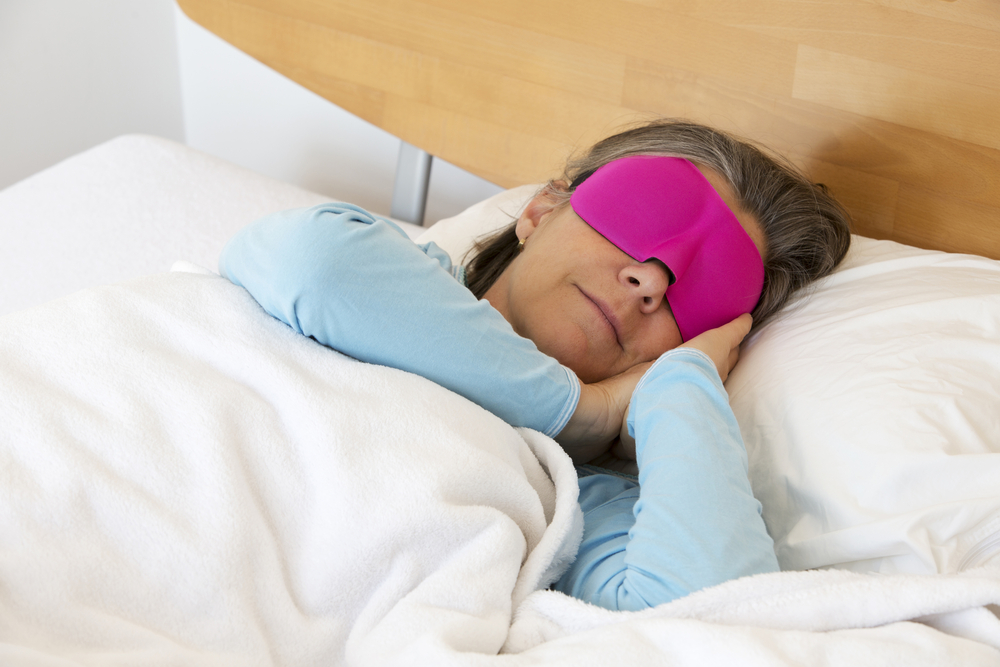
Ready to regain your peaceful sleep? Building a tranquil sleep environment can significantly shift your sleep experience.
Start by using soothing colors in your bedroom decor. Hues of blue and green can trigger relaxation and set the tone for a restful night’s sleep.
A cozy mattress is a valuable investment, offering the support your body requires to fully unwind. Aim for perfect conditions by keeping your bedroom cool, ideally between 60-67 degrees Fahrenheit.
Shut out intrusive light and noise with blackout curtains or a white noise machine. Lastly, eliminate electronic devices from your sleep haven. They’re distractions that can affect your sleep quality.
Using Mindfulness Techniques
Another potent solution for sleeplessness is mindfulness. These techniques can become your friends and significantly improve sleep during midlife. By integrating practices like meditation and deep breathing into your nightly routine, you can nurture a serene mental and physical environment favorable for sleep.
These techniques soothe your mind, lessening the rampant thoughts that often lead to insomnia. Stress reduction techniques have demonstrated effectiveness in handling sleep disturbances. Practicing mindfulness before bedtime encourages better sleep and boosts your overall well-being.
Alternative Treatments For Insomnia

In addition to mindfulness techniques, there are many other alternative treatments that can help you overcome insomnia and secure a restful night’s sleep during your midlife years.
Consider acupuncture: it’s been demonstrated to enhance sleep quality.
Herbal remedies, like valerian root and passionflower, can promote relaxation and simplify your transition into sleep. Just remember that any supplement should not be used long-term.
Aromatherapy with essential oils like lavender or chamomile can establish a soothing environment conducive to rest and trigger drowsiness.
Mind-body practices like yoga or tai chi can help lessen insomnia symptoms. And the movement increases your energy production. Surprisingly, energy is required for sleep too!
And remember, cognitive behavioral therapy is an effective, non-drug-related approach to handle insomnia.
Key Takeaways
- Build a regular bedtime routine and create a soothing sleep environment for enhanced relaxation.
- Use mindfulness methods like meditation and deep breathing to foster better sleep.
- Explore alternative treatments like acupuncture, herbal solutions, and aromatherapy for improving sleep.
- Consider Cognitive Behavioral Therapy to handle stress and anxiety associated with insomnia.
- Boost sleep quality by tackling physical health problems and making changes to your diet, incorporating hydration and foods rich in antioxidants.
Conclusion
From mindfulness practices to dietary shifts, these strategies can assist you in regaining control of your sleep. You can anticipate a future filled with restful, rejuvenating sleep.
“If you came into my office, I’d ask you a lot of questions that would help us connect the dots … so that together we can deal with your toxic stress.
Every situation is unique and you need a plan that works for you. Not a one-size-fits-all solution.
If you’re thinking you can’t come into my office, don’t worry. I’ve created a program with all of my initial recommendations to help you unravel the mystery. You can use it at home and at your convenience.
So if you’re thinking that managing chronic stress just isn’t possible … or even the answer … for you, I want to show you what you may be missing.
And how you can identify the toxic stressors that are creating your symptoms with my Human Energy System Reboot. You can get started HERE.” – Dr. Gala


